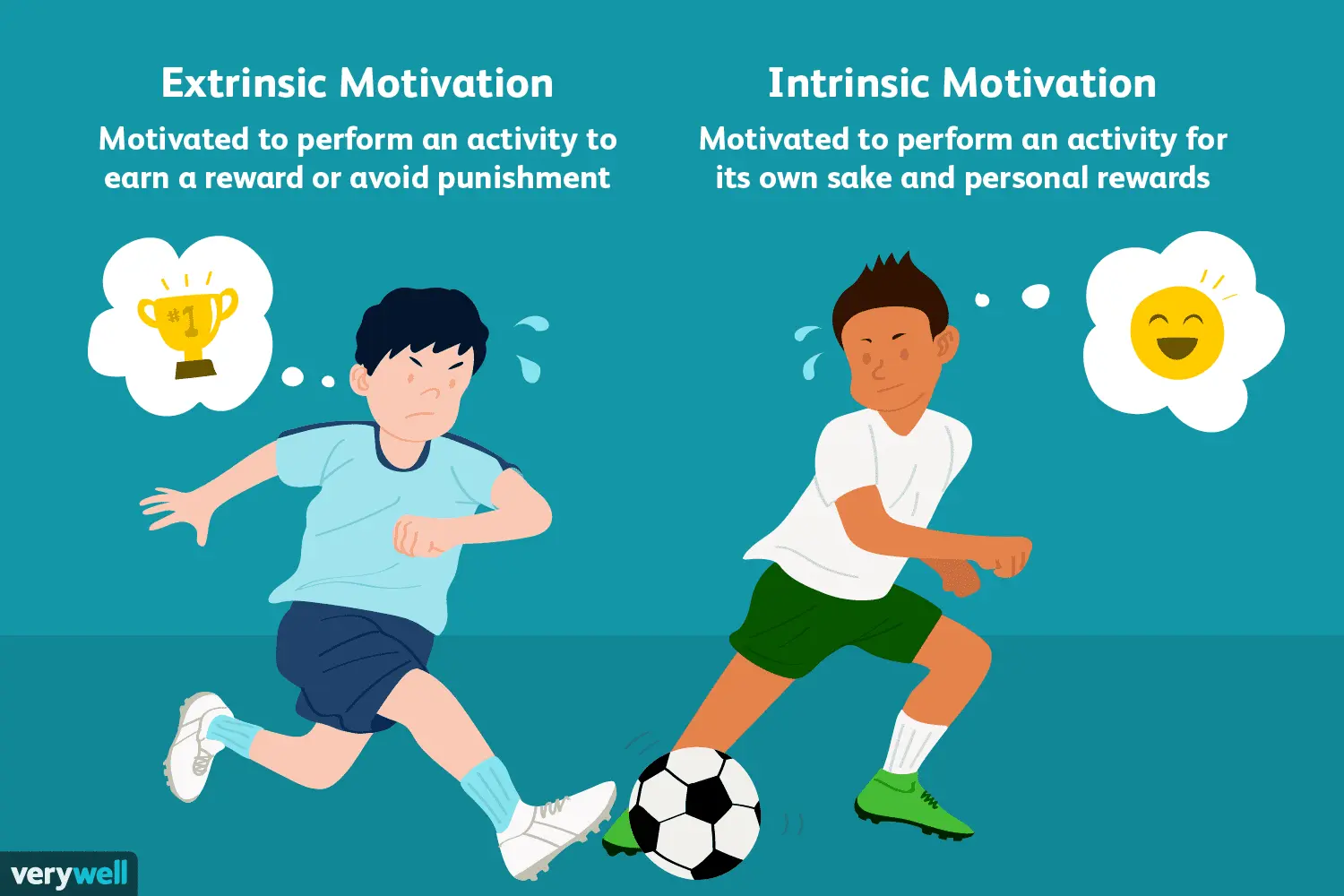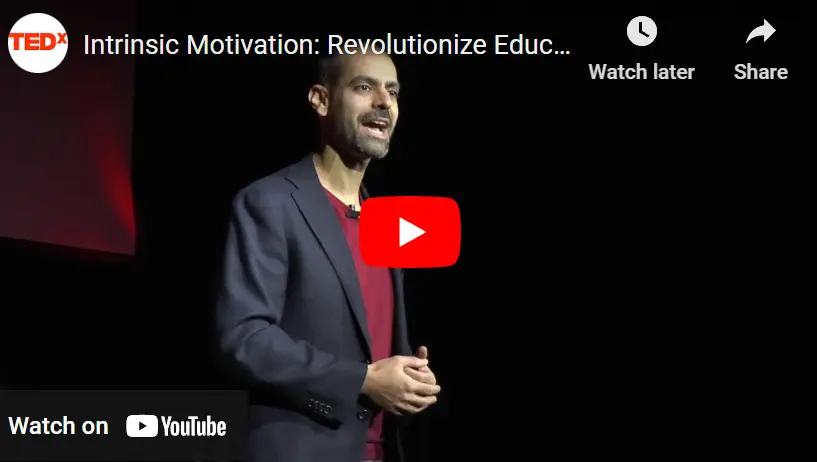By Vedika Patel | 16th April, 2023
Discover why extrinsic motivation can be counterproductive in the long run, and learn how to cultivate an intrinsic motivation mindset for more efficient work and personal development.
“You can motivate by fear and you can motivate by reward. But both these methods are only temporary. The only lasting thing is self motivation”
—Homer Rice.

Introduction To Building Intrinsic Motivation
Homer’s these exact words are what we humans must follow earnestly, especially in the places that grow and train young minds like the schools. But sadly, our educational system is deeply rooted into various evils and misconceptions. In this article, I shall opine on why the reward system isn't actually very rewarding for students in the long run.
All around me, I see adults wanting to push us harder and motivate us through such ineffective means of motivation, like the carrot and the stick! The carrot resembling a reward system and the stick; a punishment. However it is far too common that these fade away in the longer run.
Before delving deeper into what should work, let’s first understand what the various types of motivation are.
What Are The Types Of Motivation?
There are mainly two types of motivations - intrinsic and extrinsic. While intrinsic comes from inner motivation like a personal desire or goal or happiness by doing/ not doing a certain task, extrinsic motivation comes from external factors which push an individual to work / not work; like marks or any such promise that will be fulfilled at the end of the task.

Putting Things Into Perspective
Imagine a student who loves reading, will be motivated to continue reading without any external impetus because he/she is intrinsically motivated. Whereas let’s contrast this with another student who reads to get more points - this student will stop reading when the points stop.
Backed By Research!
A study conducted by M. Lepper and D. Greene of Stanford on “Undermining children’s intrinsic interest with extrinsic reward: A test of the overjustification hypothesis” proves that the intrinsic interest a person shows towards an activity may be decreased by inducing him to engage in that activity as an explicit means to some extrinsic goal. The experiment was done by “observing a group of children exposed to three conditions: the expected-award condition wherein the subjects agreed to engage in the activity in order to obtain an extrinsic reward; the unexpected award condition where the subjects had no knowledge of the reward until after completion of the activity; and the no-award condition wherein subjects neither expected nor received an extrinsic reward. The results helped conclude that subjects in the condition of expecting-award showed lesser intrinsic interest in the activity compared to the subjects in other conditions.”

Putting this experiment into context, what educators and many others, who use a reward system to get their work done fail to understand is what they are teaching or passing through this kind of reward system. When an individual is always shown the 'carrot', he/she will stop being intrinsically motivated to do anything and will always be waiting for and desiring some external impetus.
This may work in the short run, when the individual is fueled by the external impetus however life doesn't always give us rewards, so how are adults preparing these young minds for the future?
This leads to the main point; how exactly can we turn the intel of intrinsic motivation into an asset for ourselves in order to achieve the best results without experiencing burnout? Well, it’s quite simple once we have understood how the reward system affects your efficiency at the activity. As proven by the study, an extrinsic reward disrupts an individual’s motivation toward the activity and results in viewing the activity as an end in itself.
How To Build The Intrinsic Motivation Mindset?
It is a common phenomenon to see extrinsic reward systems in students from all adults around them, namely; parents, and teachers. However, this would create an addiction for the reward and anytime there is no reward at the end will make the student not work. Not only will it increase the pressure on the student to complete it, but it will also mostly jeopardize the quality where the child is simply racing against the clock to complete the task.
So, we must focus on building a mindset wherein the activity in itself is the reward. The comprehensive theory of human motivation, Self-Determination Theory (SDT), developed by Edward Deci and Richard Ryan (1985), suggests that intrinsic motivation, the most internalized form of motivation, is dependent on the fulfillment of three basic human needs: autonomy, mastery, and purpose. If these needs are fulfilled, self-determination to engage in a particular behavior is much more likely.
Conclusively, developing intrinsic motivation into a daily lifestyle by practicing habits without a reward at hand will not only lead to efficient work but will also train one’s mind is also essential for students to stay on track with their academics and personal development.
Some ways you can practice this is by doing tasks without a specific goal and pursuing loved activities with resilience in mind as that is the key point to succeeding through the highs and lows of education shared by Behrouz Moemeni on the TEDx stage.

Intrinsic Motivation: Revolutionize Education, Work and Life | Behrouz Moemeni | TEDxWLUBrantford
As he has also mentioned, “You must be honest with yourself and find the activities enjoyable and you are willing to continue without the need of external reward or punishments” because as the youth of Gen Z, as we move further into our lives, we will come across countless opportunities that will not merely hold us accountable and consider us based on factors like where we have completed your studies, or how many excellency awards have we obtained. Rather, they will search for intrinsically motivated youth who will find satisfaction from the job itself in the emerging industries!
Thumbnail Design by Mudit Jha






Forgot password?
Close message
Subscribe to this blog post's comments through...
Subscribe via email
SubscribeComments
Post a new comment
Comment as a Guest, or login:
Connected as (Logout)
Not displayed publicly.
Comments by IntenseDebate
Reply as a Guest, or login:
Connected as (Logout)
Not displayed publicly.